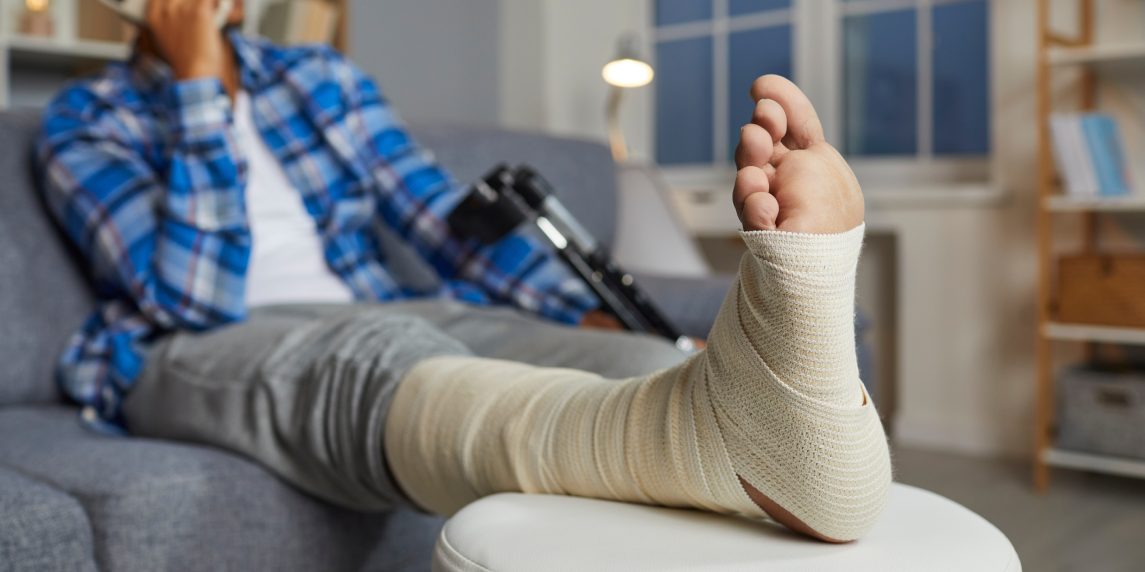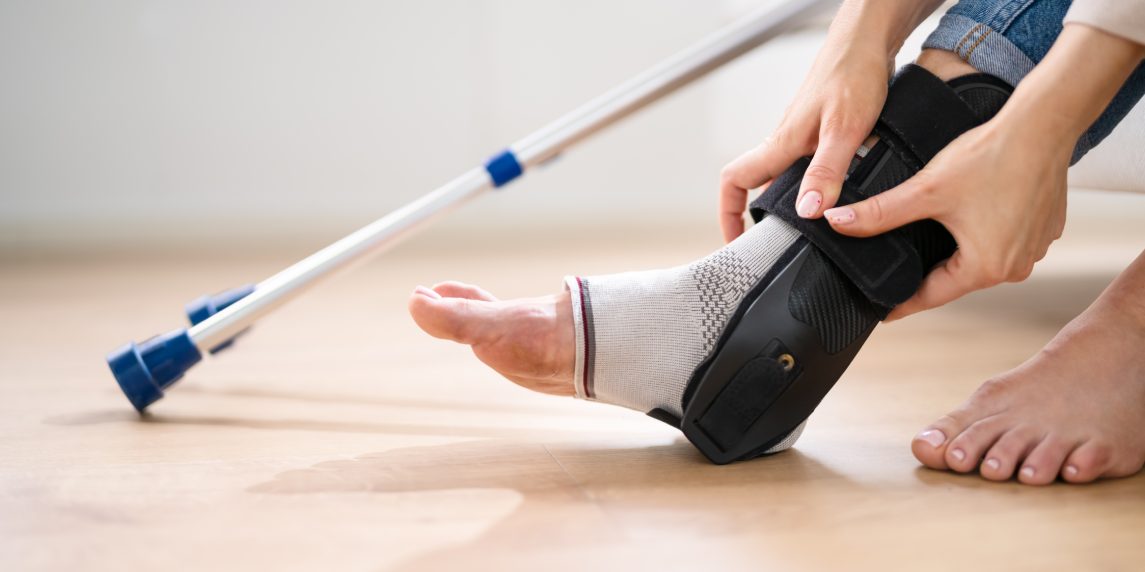Ankle sprains can occur while walking on uneven surfaces, within the household, or while participating in sports. This pretty much explains why they are so common. As many as 25,000 people in America sprain an ankle daily. Of these, only 10% of ankle sprains are serious, while the rest can be treated without medical help. However, no matter the seriousness of the ankle sprain, it should be treated before subjecting the ankle to additional pressure. Any undue stress on a not-recovered ankle sprain can alleviate the issue.
Here are the best 7 ways to shorten your ankle sprain recovery and return to normal life using ankle pain therapy.

Rest well
The first way to shorten your recovery time is to provide rest to your affected ankle. This will help keep the swelling down. In a grade 1 ankle sprain, the swelling can decrease in a day or two. In a grade 2 ankle sprain, it can take a week or two for the swelling to subside. If the swelling does not reduce within two weeks, a grade 3 ankle sprain may require surgery. This is probably when the person has repeatedly sprained their ankle.
Rest well to minimize walking or putting any pressure on the affected ankle. Giving it rest will help the body start the natural healing process.
Ice the affected ankle
If you experience swelling and pain in the affected ankle, icing helps shorten the recovery. Icing helps reduce the swelling caused by ligament tears.
The best way to ice your affected ankle is by using an ice bag or wrapping the ice in a towel. Refrain from putting ice directly on the ankle, as it can cause tissue damage due to freezing. You can also use frozen bags of corn or peas to ice. Do not keep the ice bag in a single location for extended periods. Instead, keep changing its position. Ice the affected ankle for 15 to 20 minutes once or twice daily to reduce the swelling and pain.
Make use of braces and bandage wraps
Compression is the third way to shorten your sprained ankle recovery process. It also helps minimize the swelling in the sprained ankle. Compression with the help of braces and bandage wraps should be applied within the first 24 to 36 hours for the best results. It helps prevent fluid accumulation at the joint, thus preventing the swelling in the first place.
However, wrapping the bandage the right way is quite crucial. The bandage must be wrapped around the toes up to the mid-calf region. It should not be wrapped too tightly to avoid troubled movement.

Elevation
Another important step in recovery is keeping the sprained ankle elevated as much as possible. Elevating the affected leg is important for three reasons. First, it provides the ankle with the needed rest. Second, it keeps the pressure off the foot. Third, it helps improve blood circulation, preventing fluid accumulation and swelling in the foot area.
Start with basic exercises
Once you have rested the ankle for a few days and the swelling has started subsiding, it’s time to move your ankle a bit. Chiropractic care involving the use of the right ankle adjustments will help in quick recovery. Basic exercises help regain the foot’s motion and flexibility slowly and gradually.
Your chiropractor may introduce you to ankle stretching exercises like towel stretches, one-leg balance, heel raises, ankle motion exercises like knee motion, ankle alphabet, tissue scrunchies, and other ankle strengthening exercises.
Keep it protected
It’s very important to protect your foot from re-injury during recovery. You should keep it protected by exercising caution in your movements. A re-injury of a sprained ankle can worsen the condition and increase the recovery time.
Therefore, keeping it protected is also beneficial for shortening your ankle sprain recovery.
Slowly return to activity
After ankle pain therapy, once the ankle has regained its full flexibility, you can gradually return to your usual activity levels. This may be indulging in sports activity, returning to exercise, or doing housework. However, start with minimal effort and gradually increase the time, weight, or speed as your ankle sprain improves. Overexerting your ankle may make it worse.
You may start experiencing chronic problems with the injured joint due to overexertion. Though minor ankle sprains can be treated at home, it is still important to seek the advice of a doctor or chiropractor expert regarding the right care. They can better diagnose the extent of the injury and provide thorough care accordingly.

When to Visit the Doctor for an Ankle Sprain
Not all ankle sprains require medical attention. However, it’s essential to visit the doctor if the injury worsens. Some of the signs of a serious ankle sprain that demand medical assistance include:
- Pain in the affected area to the point where you take over-the-counter pills.
- Swelling that isn’t going down a bit even after two days.
- You don’t see any improvement in the sprained ankle and cannot move your feet even after a few days.
In such instances, it’s better to see a doctor as these may be signs of other serious injuries, like a torn ligament or a bone fracture.

How Do You Get Back to Your Feet Quickly?
Taking foot and ankle pain therapy is the best way to shorten your ankle sprain recovery. Chiropractic care is necessary even during the recovery period when pain and swelling persist. The pain and swelling associated with ankle sprain can be brought down through gentle strengthening and stretching exercises that form part of chiropractic care sessions. Sprained ankle exercises help with faster recovery and minimize the chances of re-injury.
Chiropractic care for ankle sprains ensures faster recovery when the exercises are performed properly. These sessions can also be done from the comfort of your home. Once you get a hang of the exercises, you can perform on your own.
Ankle Pain Chiropractor in Santa Monica
At Dr Roy, we can help you manage all sorts of foot and ankle pain resulting from sprains or for any other reason. Be it your first sprain, an ankle sprain surgery, or anything else, our ankle pain therapy in Santa Monica will help speed up your recovery. Contact us to learn more.





